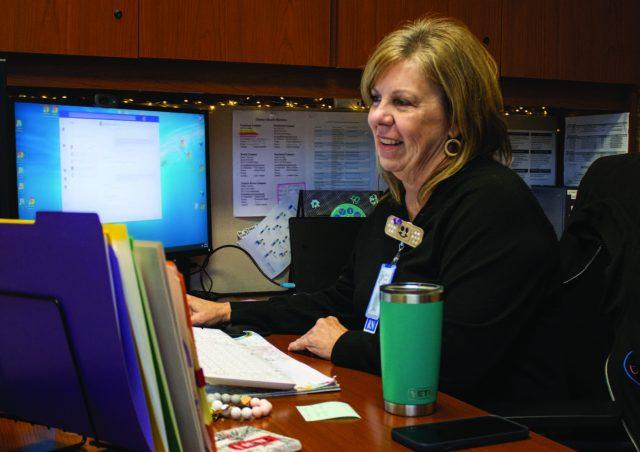XAVIER BOATNER
campus editor
xavier.boatner@my.tccd.edu
As the end of the semester draws near, the stress of an ever-increasing workload has begun to weigh on the shoulders of students.
As time passes, so does the extensive amount of work for the average student. It’s often par for the course that class workloads grow a fair amount as the weeks go by, and TCC students have tried to speak up about how their assignment workloads have put pressure on them and caused them to approach their studies and everyday activities a little differently.
“To be honest, just making sure that I complete all the assignments on time is very stressful in itself,” Connect student Sean Garrett said. “Especially with the load I have on my plate, working two jobs, and with all of that taking time out to relax, I barely have time to exercise like I want to.”
Trying to balance personal duties, personal desires and heavier assignment workloads can breed stress in college students. A study conducted by the American College Health Association in Spring 2022 as a part of its National College Health Assessment surveyed “over 54,000 undergraduate students” and revealed that around “77% were experiencing moderate to serious psychological distress.”
However, psychological distress can lead to new habits. With 24 hours in a day, it’s possible to find time to make improvements, Garrett said.
“It’s all about managing it properly and getting the required rest each day. With that being said, in my experience, school has changed dramatically over the past 30 years,” he said. “It is stressful, but I learned to manage. Mastering multitasking and time management comes with practice.”
Efforts to manage time properly can be beneficial for students across the board, despite its difficulties. Busy single mother and NE student Kortney Cousin said finding time for both her child and her is an arduous process, yet one that pays off overall.
“I have done well so far keeping my grades in order and making sure my child is loved and has attention,” she said. “But I have lacked in the self-care department, and giving myself grace during these times,” she said. “I am learning to manage my time a little better as well as being more organized and staying disciplined.”
Organization, as well as stronger study habits, are especially important at this point in the semester, due to final exams ramping up alongside larger assignment workloads. One of the best ways to prepare for upcoming exams is by closely reviewing as many lectures and graded materials as possible, however, doing so extensively could cause a state of exhaustion and mental fatigue, said NE student Lexi Baker.
“I always stress and spend all my time studying,” Baker said. “I always get super stressed which then puts me in a depressive state. My study habits change from class to class depending on what assignments we did throughout the semester.”
Those feelings of being overwhelmed and overworked had reflected on Baker’s grades and overall performance, she said.
“My performance is affected a little bit by the time it’s finals season I’m ready for the semester to be over,” she said. “I try to put my best effort into every assignment but sometimes I submit poor work when I’ve spent all day studying.”
Feelings such as this could be sidestepped by using past experiences to adapt and learn new habits that could help students improve their mental health and class performance. Baker said last semester, she was remarkably stressed about finals, and while she is still experiencing the pressure of finals this semester, she has learned new habits informed by prior circumstances.
“I feel like if I would’ve started preparing sooner, I wouldn’t have been as stressed,” she said. “I think the projects are needed, and the exams are useful, but I wish we could divide everything up into lesson quizzes and all of the quizzes be averaged for our final grade.”




































